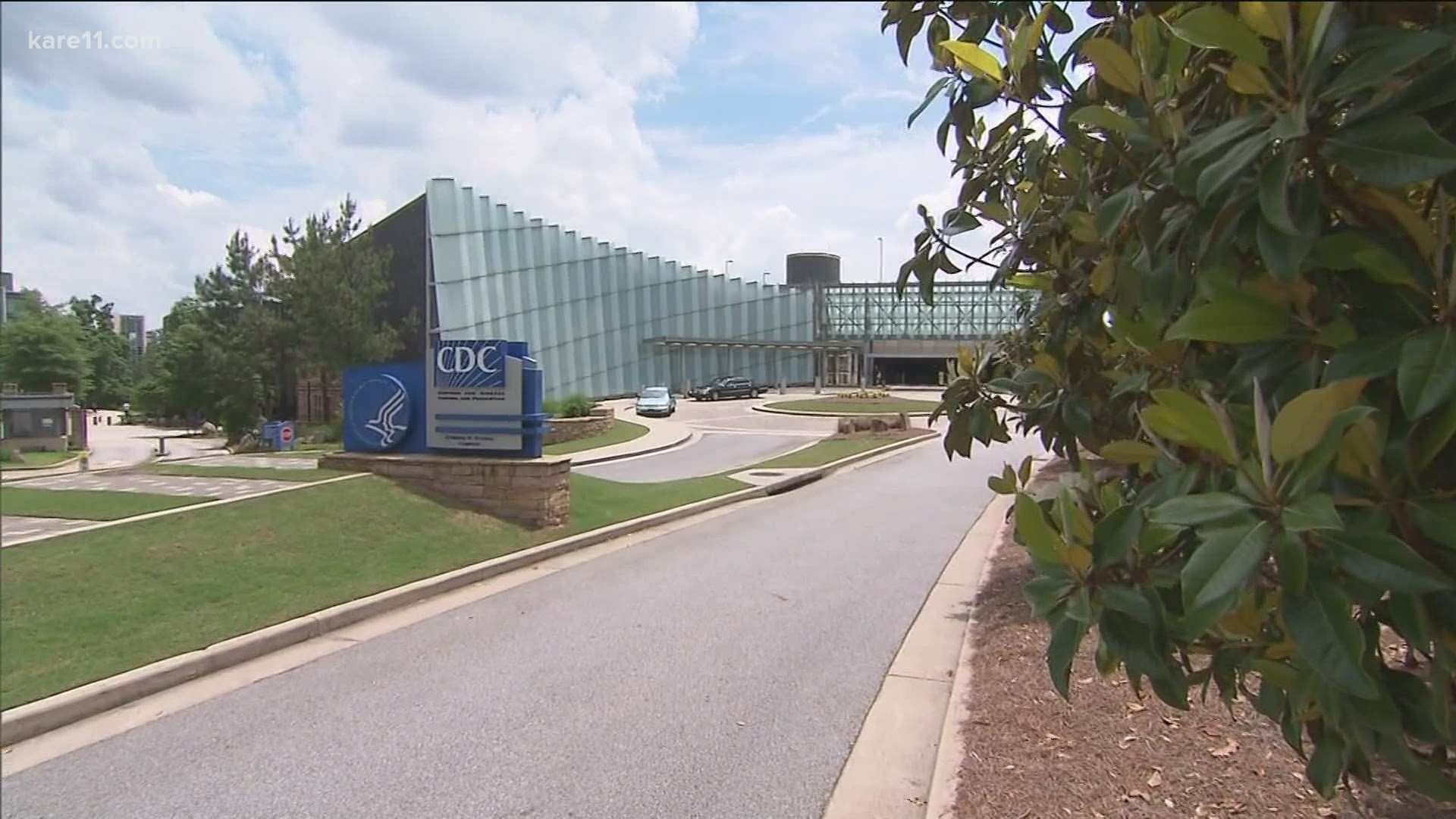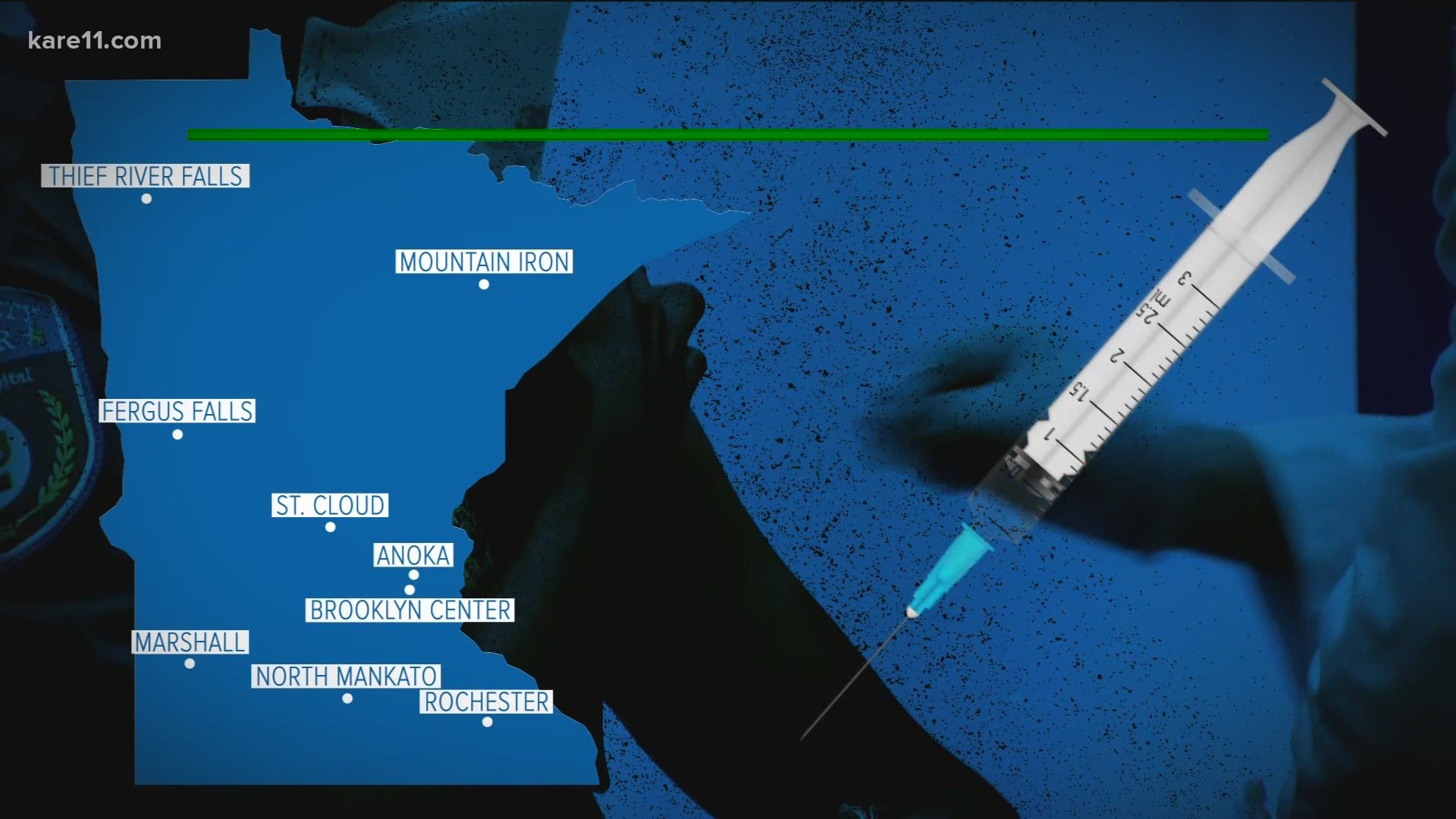A lot of you continue to have questions about the vaccine and we're committed to getting to as many of them as we can.
The Centers for Disease Control and Prevention's recent changes to its guidelines created a lot of confusion about who gets the vaccine first.
It now has some people asking about essential workers and wrote, "How do we know what job falls into what category?"
The Minnesota Department of Health still considers healthcare workers and nursing home residents and staff in its top tier and nearly all of them are fully vaccinated. MDH spokesperson John Schadl said the state is still finalizing who gets the vaccine next.
"We are currently finalizing the guidance for the next phase in our vaccination program, priority group 1b. This group will include people over 65, people with underlaying health conditions and people in essential jobs such as teachers, police officers and food workers," writes Schadl in an email.
The CDC's changes also includes people with underlying conditions. Someone else asked us, "Is there a list of those conditions that allow you to get the vaccine earlier?"
M Health Fairview Doctor Abe Jacob says it includes cardiac and neurological conditions and uncontrolled diabetes, but they're still working on how to validate whether someone's condition is real.
"So, I could walk up to any vaccination clinic and say I've got diabetes," said Dr. Jacob. "How does the person vaccinating me know or validate I do have diabetes?"
He says health care systems have that information and will be most effective at vaccinating that population when the supply ramps up.
Schadl writes, "Most people who will be vaccinated will be notified when to do so by their regular health care providers and receive their shots in their doctor’s office. Your own doctor has the best person to determine which priority group you should be in if you have underlaying health conditions."
If you are instead getting vaccinated at one of the nine clinics through the state's new pilot program, another viewer asked, "Is a particular site getting more doses?"
MDH says there are 11,700 doses allocated to this program and then split into what it calls "blocks".
"The metro area, Brooklyn Center and Blaine, receive two-and-a-half of those blocks and each of the other seven sites across the state receive one," said Anne O'Connor who serves as the Deputy Commissioner for the Minnesota Department of Commerce.
Another viewer said their attempt to pre-register for the pilot program online was rejected, prompting them to wonder, "Can people who only live in those nine cities sign up?"
"Anyone who had any issue at all with a message like that, we would encourage them to go online and just make sure the information they entered, that the street information and zip code is entered correctly," said Commissioner of Minnesota IT Services Tarek Tomes. "All Minnesotans within Minnesota should be able to register without a problem."
Another person wants to know if he'll have to keep registering for the pilot program's lottery and wrote, "Will I need to go back into the lottery every week, or never again?"
Tomes says the waitlist isn't deleted and once you're on it you should always qualify.
The pilot program is not intended to be the primary tool conducting broad vaccination against COVID-19. The nine clinics have been set up to help identify the best procedures and practices for operating mass vaccination clinics in areas where access to pharmacies, medical clinics and other facilities of this type are not available.
Even more information can be found here.
And lastly, the new virus variants are causing some concern. Someone else asked, "How many are there?"
MDH says four have been discovered - one from California and South Africa. They confirmed the other two, from the United Kingdom and Brazil, are in Minnesota. Some of the infected people live in the Twin Cities and got it after traveling to Brazil, California and the Dominican Republic.
"What has us concerned about the variants circulating currently is that it appears they have some of the characteristics that could allow them to spread more easily," said Assistant Director of the MDH Public Health Lab Sarah Vetter, who also said her team is looking at whether the variants cause more severe disease.
Doctors say it's best to continue practicing mitigation efforts like staying home if you're sick, social distancing and wearing masks - some recommend wearing two of them or one respirator.


